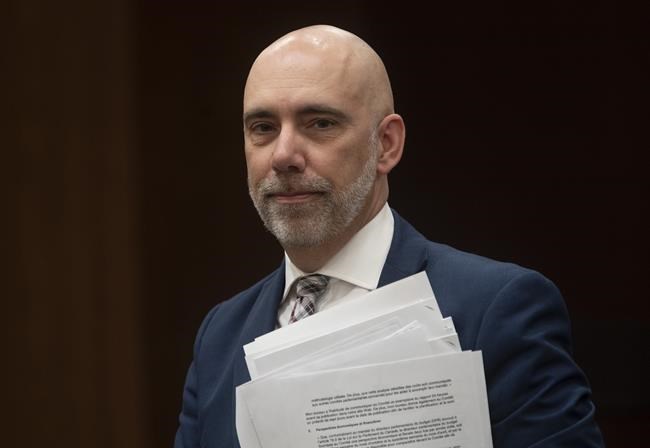OTTAWA — Parliament's spending watchdog says the federal treasury will see a trickle of new revenue roll in faster than the government expects from changes to tax rules on employee stock options.
The Liberals banked $55 million in new revenues from the proposed rules in the November fall economic statement, but not until 2025 at the earliest.
The parliamentary budget officer estimates in a report released today that the government may earn almost that same amount over the next five years.
But Yves Giroux's costing note estimates the first million to arrive in the 2022-2023 fiscal year, and grow annually thereafter until it hits $30 million in 2025-2026.
The report says the government wouldn't see the full financial impact from changing the tax treatment on stock options until 2033, when revenues from the measure could reach $144 million.
The reason for the change has to do with when employees would exercise their stock options after they are granted.
The PBO estimates the average individual takes between four and five years to exercise their options, although the timeline could be as little as one year, or as many as 11.
This is the government's second attempt at changing how it taxes stock options, having first put out the proposal in 2019 only to be forced to hold off when it had to go back for more consultations.
The Liberals want to put a $200,000 cap on options that can qualify for a 50 per cent deduction. Anything above that amount wouldn't be eligible for the preferential tax rate.
The government argues that many high-paid executives at established companies too often use the stock options to lower their tax burden.
Exemptions would be created to spare startups and companies with annually gross revenues of up to $500 million as many use stock options to attract and retain employees because they're not able to pay competitive salaries.
The new rules wouldn't come into effect until July 1.
The PBO report assumes some behavioural changes from companies in the form of higher salaries to top employees to offset losses in after-tax income. The salary increase would likely be taxable at the top tax rate, the PBO says.
This report by The Canadian Press was first published Jan. 14, 2020.
The Canadian Press


